Wizard and Glass begins where The Waste Lands ends. In fact, it repeats the final chapter of that book as its beginning, as King resolves the plot left in abeyance at the end of the previous volume. This makes the structure of the novel seem a little disjointed, until the final section of the book, which ties the plot lines up. The main bulk of the novel is actually a flashback to Roland’s younger days, told to his ka-tet, his small band of followers, Jake, Susanna, Eddie and Oy. The story he tells is concerned with his first love, Susan, whom he met when he was fourteen, his two friends, Alain and Cuthbert, and their resistance against the plans of the Good Man, John Farson, who plans a rebellion against the Affiliation, which serves the interests of Roland’s social class.
I found this volume the most engaging of the first four volumes. The resolution of the story of Blaine the Train occupies the first section of the novel, and seems out of place, although I think that’s a result of the poorly constructed conclusion of the previous volume, rather than an overall fault of this one. Apart from this false start, this is a well-constructed story. King claims in his afterword that he delayed writing this book because he was not confident about writing a love story. I think he has succeeded, though. Susan is a convincing and sympathetic character. She lives with her Aunt Cordelia, having lost both her parents, and is now soon to become Mayor Thorin’s official mistress in order to maintain their home. King builds this situation well. The scene in which she is ‘tested’ for her virginity by Rhea the witch is both engrossing and awkward to read. Then, enter young, attractive Roland to complicate her situation.
The book also presents more of Roland's world, as it needs to. Not only the political situation involving Farson, which is the overarching story here, but the sense of the physical world and its customs, as well as a growing understanding of where we found Roland at the beginning of the first volume in the series. We have a greater understanding of how Roland’s world and our own are linked, and the role of the Dark Tower in connecting different realities. The Wizard’s Glass also becomes an important ‘character’ as well, much like the Ring in Tolkien’s novel. Overall, King integrates the love story and this broader political canvas well.
I was shown a meme while reading the book about alternative perspectives on famous stories. One was about The Wizard of Oz; that Dorothy begins by murdering someone when she comes to Oz, and is then encouraged by Glinda to undertake an unnecessary quest that ultimately sees her perform another hit. Anyone who reads this book will understand the importance of The Wizard of Oz to the final section of this book. I won’t go into that here. However, it did make me wonder at the politics of Roland’s world and our perspective of it. Roland’s tale is told to his friends in one night we are told, and we later find that the bits he couldn’t have known were magically revealed to him (of course) I wondered at this perspective, the fact that the ‘bad guy’, Farson is called ‘the Good Man’, and the little that is revealed about the motives for the uprising. This is obviously important to later volumes, and some of it may be explained. However, it is interesting to consider how King turns us against Farson, Jonas and his ‘Coffin Hunters’ and their supporters. I think this is done primarily through two things. First, is the attitude to sex in the book. ‘Bad’ characters like Jonas or Coral Thorin treat sex as something to be enjoyed but not necessarily associated with romantic love. Sex is a utilitarian exchange. The benchmark for relationships in the novel is of course Roland and Susan. They love each other and the intensity of their love is overwhelming. Second, is the attitude to technology. Farson’s desire to use the technology of the old times and the oil from Citgo to power it marks him as less than noble, it seems. I felt, at times, that we were asked to uncritically accept Roland’s perspective in the tradition of fantasy, which tends to have a Manichean perspective of human realities.
Of course, there are still moments that jar in the narrative. Some aspects of the plot seem contradictory. For instance, Mayor Thorin goes to some expense and trouble to have Susan declared a virgin, and Aunt Cordelia is paranoid that Susan will become enamoured of some boy and thereby endanger the money they stand to earn. But neither Thorin or her Aunt ever have her chaperoned, as one might expect with so much invested in her. In fact, she seems to have free reign to wander where and when she likes. Aspects of the working of the Wizard’s Glass also seemed contradictory to me, especially near the end, when it at one point serves Roland’s interests, even though we are told it is malevolent. And there is that future remembering business which I mentioned in my last review of The Waste Lands: not so prevalent in this book, but it seems to pop up when it’s handy for the plot: “He doesn’t know how he knows this, but he does …” I guess it’s magic.
However, I feel the series improves with this book. We know more about our main character Roland and his world, we understand the origins and purpose of the quest for the Dark Tower more clearly, and the story is, overall, better structured and engaging than its processors. An entertaining read.

 RSS Feed
RSS Feed Facebook
Facebook Instagram
Instagram YouTube
YouTube Subscribe to our Newsletter
Subscribe to our Newsletter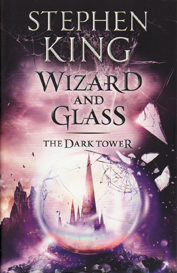

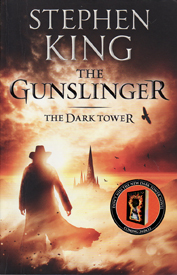
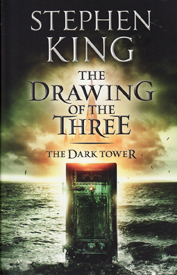
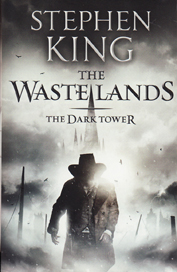
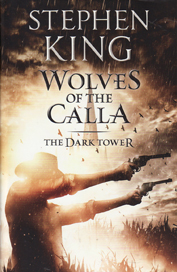
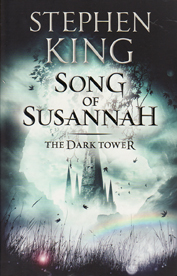
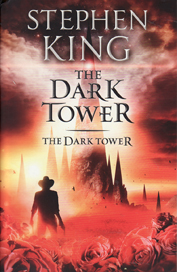
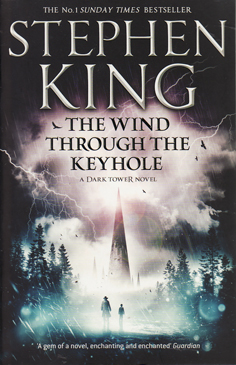

No one has commented yet. Be the first!